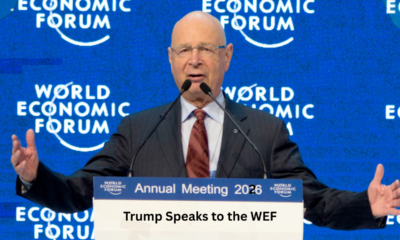Money matters
Credit rating: another US downgrade

A credit rating agency that no one notices, downgraded US treasury securities again. They had already downgraded American bonds to AA. The new rating is AA-, the lowest rating that the American public debt has ever carried.
Credit rating downgrade
The credit rating agency that acted yesterday is Egan-Jones. On their home page they boast that no bond issuer pays them. So they can afford to give objective, “risk-averse” ratings. And that is why anyone buys bonds: to avoid risk. (Averse is a fancy Latin word meaning “turning away from something,” hence avoiding it.) Egan-Jones, furthermore, accuses their fellow credit ratings agencies of inflating their ratings. And they have the studies to back up that charge. Why do the other credit ratings firms inflate their ratings? Because bond issuers pay them. Egan-Jones’ clients are bond investors, not bond issuers.
Egan-Jones makes their full reports available only to paying clients. But CNBC and USA Today both had copies. According to them, Egan-Jones acted when the Federal Reserve announced their “quantitative easing” program. Egan-Jones objects to quantitative easing, mainly because this will not help the American economy produce, and will merely devalue the dollar. And with a weak dollar, consumers must spend more on motor fuel, and on everything that moves (because it takes motor fuel to move them). So they have less to spend on other things.
Egan-Jones fights the Big Boys
In the credit rating debate, Egan-Jones stands alone against the Big Boys: Moody’s, Standard and Poor, and Fitch. Of those three, Standard and Poor downgraded US debt to AA+ from AAA. Moody’s and Fitch both give US debt their highest rating. (But USA Today suggested that Moody’s might change their minds if Congress and the putative President cannot agree on a new budget.)

A Weimar-era householder wheels a barrow full of worthless Reichsbanknotes to the corner baker to buy a loaf of bread. Will the US economy reduce people to this, when it runs out of other people’s money?
Egan-Jones has been ahead of the other credit rating firms in saying that the United States government is acting like a deadbeat. In July of 2011 they downgraded US debt from AAA to AA+. In April of this year, they downgraded US debt again, to AA. And now they have acted again.
Metaphors for Egan-Jones, as against the Big Boys, are ridiculously easy to find. Consider:
- Cassandra, the Trojan prophetess that lay under a curse that no one would believe her until it was too late.
- The little boy in the Hans Christian Andersen story about an emperor who parades naked through his capital.
- The Prophet Jeremiah.
And Egan-Jones is right. The US government is acting like a deadbeat. It creates money by simply saying, Fiat argentum! “Let there be money!” (Latin fiat, jussive subjunctive of sum, esse, fui I am, to be, I was.) Then they use this Monopoly money (apologies to Parker Brothers) to buy mortgage-backed bonds. Those are the same mortgages that are more than the market values of the homes that “secure” them! And when you create more of a thing, you make the other copies worth less. By doing that, you steal from those prudent enough to save, if they had the bad sense to save their money in US cash.
The US government decided on quantitative easing, probably to “inflate the debt away.” It doesn’t work that way. Eventually, US government debt will become, formally, junk. And Egan-Jones will be first to say that. They won’t say it out loud today. They don’t do “forward-looking reports.” But they, not the Big Boys, are the boys to watch.
[amazon_carousel widget_type=”ASINList” width=”500″ height=”250″ title=”” market_place=”US” shuffle_products=”True” show_border=”False” asin=”0446510998, 0470047666, 0385512244, 0470612533, 1449555381, 1586489941, 1451542291, 047047453X, 1460954262, 193317496X” /]
[subscribe2]
Terry A. Hurlbut has been a student of politics, philosophy, and science for more than 35 years. He is a graduate of Yale College and has served as a physician-level laboratory administrator in a 250-bed community hospital. He also is a serious student of the Bible, is conversant in its two primary original languages, and has followed the creation-science movement closely since 1993.
-

 Accountability2 days ago
Accountability2 days agoWaste of the Day: Principal Bought Lobster with School Funds
-

 Constitution2 days ago
Constitution2 days agoTrump, Canada, and the Constitutional Problem Beneath the Bridge
-

 Executive24 hours ago
Executive24 hours agoHow Relaxed COVID-Era Rules Fueled Minnesota’s Biggest Scam
-

 Civilization23 hours ago
Civilization23 hours agoThe End of Purple States and Competitive Districts
-

 Civilization5 days ago
Civilization5 days agoThe devil is in the details
-

 Executive4 days ago
Executive4 days agoTwo New Books Bash Covid Failures
-

 Civilization4 days ago
Civilization4 days agoThe Conundrum of President Donald J. Trump
-

 Executive4 days ago
Executive4 days agoThe Israeli Lesson Democrats Ignore at Their Peril















These credit-ratings agencies are the same ones that gave the high ratings to all the houses prior to the 2008 crash. Why do we care what they have to say? Investors know that if they United States economy was to fail, the entire world’s economy would come down crashing with it. Meaning that investing in America is always a safe bet, at least for the foreseeable future.
The Big Boys were giving high ratings to all the houses. But did that apply to Egan-Jones? I doubt it.
I wouldn’t doubt it, although at the moment I cant find a reference to support or deny what rating Egan-Jones was giving back pre-2008.
But in any case, why does it matter what these agencies rate the United States? Investors are still buying American bonds regardless of rating, and will continue to do so since the American economy remains very strong (regardless of the fear-mongering by the GOP).
Two questions are relevant here:
1. Probably for a while, for the reason explained below.
2. I’d call it wise. If the United States economy were to actually collapse, we’d take the whole world down with us (as we did in 2008). We certainly are, in every sense of the phrase, “too big to fail”. The strength of nearly any global investment in dependent on the United States economy staying strong.
There we necessarily disagree. Nothing is too big to fail. Nothing.